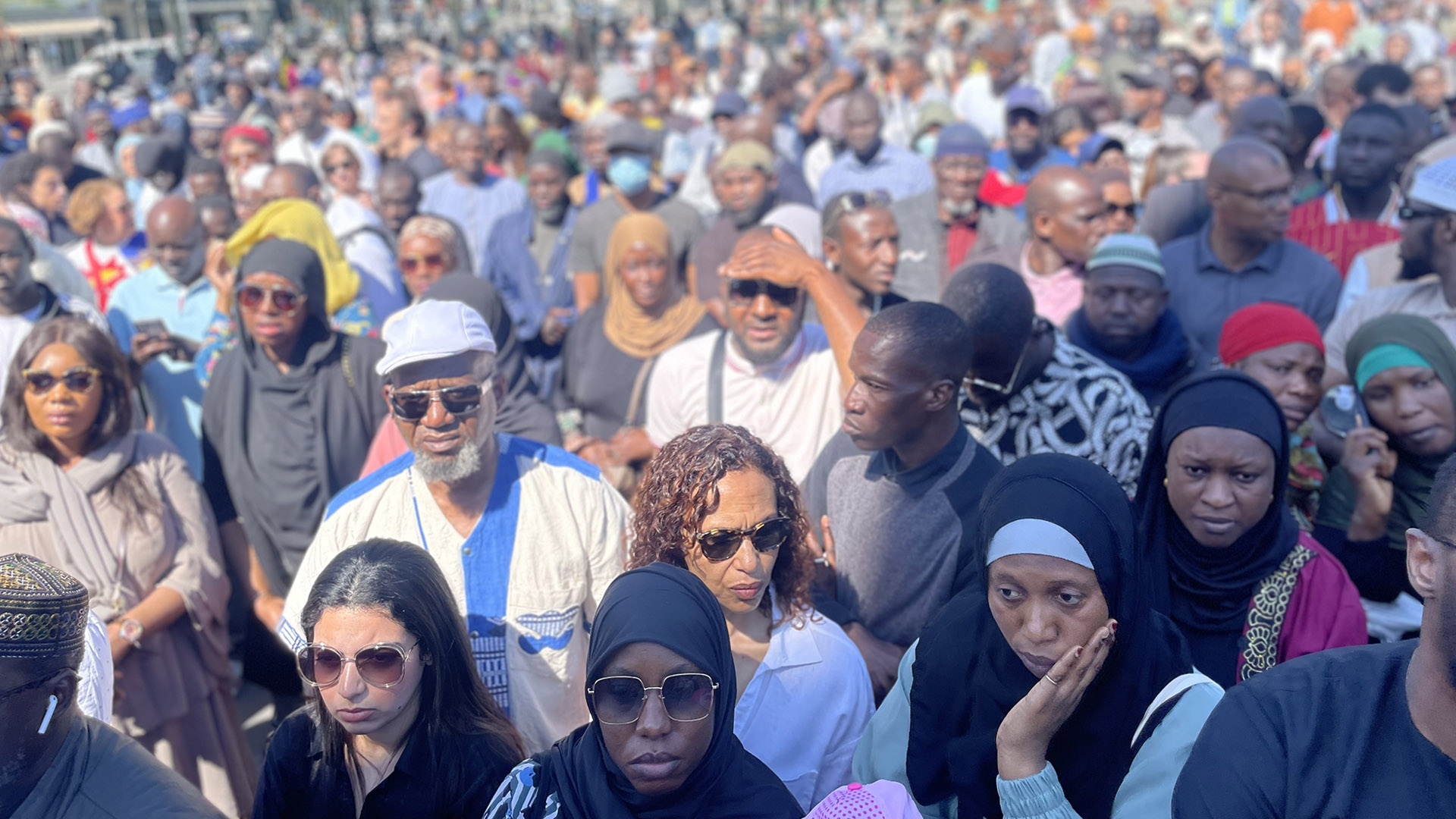
Nadine Osman
The brutal killing of a 24-year-old worshipper at a mosque in southern France has intensified calls for the attack to be formally recognised as terrorism, with Muslim leaders and anti-racism campaigners pointing to an increasingly hostile environment fuelled by institutional Islamophobia.
Aboubakar Cissé, a Malian migrant, was fatally stabbed at least 60 times while preparing the Khadija Mosque in La Grand-Combe for Friday prayers on April 25. He had arrived early to clean the building when he was attacked by a man who initially pretended to join him in worship. The assailant, identified as 21-year-old Olivier H., recorded the gruesome killing on his phone while shouting anti-Muslim slurs and profanities against Islam.
Security footage showed the suspect screaming hate-filled slogans and declaring, “I’m going to be arrested – that’s for sure.” Worshippers discovered Cissé’s body later that morning.
Following a Europe-wide manhunt, Olivier H. surrendered to authorities at a police station in Pistoia, Italy, around 11 p.m. local time on April 27, according to Franceinfo. He was taken into custody, and extradition proceedings to return him to France are now underway.
The Grand Mosque of Paris and the French Council of the Muslim Faith (CFCM) have both demanded the killing be classified as a terrorist act. They cited the scale and religious motivation behind the attack, warning of the deadly consequences of unchecked anti-Muslim rhetoric in France.
“This was an anti-Muslim terrorist act,” the CFCM stated firmly, echoing sentiments expressed by demonstrators who rallied in Paris in the days following the murder. Protesters carried signs reading, “Islamophobia kills, the state is complicit” and “Justice for Aboubakar.”
French-Malian anti-racism activist Assa Traoré, speaking at the protest, said, “We have a system, we have a state that is afraid, and it is this fear that we are facing head-on.”
Valentin Stel, Director General of SOS Racisme, added, “We’ve been witnessing for years hate speech targeting the Muslim community in France, suggesting that they are not fully French or that their loyalty is questionable.”
Political scientist Haoues Seniguer, of Sciences Po Lyon, warned just days before the attack of the increasing normalisation of Islamophobia in political discourse. He noted how terms like “Islamism,” “separatism,” and “infiltration” are frequently used to cast suspicion on ordinary Muslims. “They’ve become so common that few stop to question them,” Seniguer said. “It’s no longer just about condemning jihadist violence. It’s about actively tracking down supposedly deviant Muslims simply because they’re visible in public life.”
Seniguer also criticised the growing trend of labelling Muslims who speak out against discrimination as extremists. “Today, just using the word ‘Islamophobia’ can get someone accused of being an Islamist or Brotherhood sympathiser—or at the very least, an enabler,” he added.
Prime Minister François Bayrou described the murder as a “shame” in a social media post, acknowledging that “the shame of Islamophobia was displayed on video.” President Emmanuel Macron also condemned racism and religious hatred, stating, “Freedom of worship cannot be violated.” However, critics argue that such statements are hollow against a backdrop of policies and rhetoric that have, they claim, emboldened anti-Muslim sentiment.
French Muslim communities say their peaceful activism—particularly around Palestine—has increasingly been misrepresented as extremism. Prominent activist Elias d’Imzalene told an OSCE conference in 2024 that France had become “the spearhead of Islamophobia in Europe,” citing state efforts to suppress Muslim voices advocating for a Gaza ceasefire.
Interior Minister Gérald Darmanin and other officials have linked pro-Palestinian protests to Islamist radicalisation, while far-right figures such as Éric Zemmour have equated Gaza solidarity with support for terrorism. Jean Messiha and former Prime Minister Élisabeth Borne have also condemned such demonstrations as veiled antisemitism, prompting outrage from Muslim communities who say legitimate advocacy is being unfairly criminalised.
For many, Cissé’s murder is the tragic outcome of this escalating climate. Campaigners warn that unless Islamophobia is directly confronted, more lives could be lost to violence incited by hate and indifference.
Photo: Hundreds gather at Place de la République in Paris on May 1, 2025, to protest against Islamophobia and the brutal killing of Muslim worshipper Aboubakar Cissé. The 24-year-old was fatally stabbed on April 25 while preparing the Hatice Mosque in La Grand-Combe, Gard region, for Friday prayers. (Credit: Esra Taşkı/Anadolu Agency)